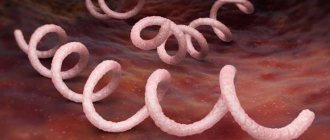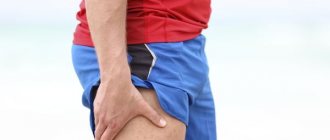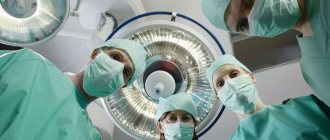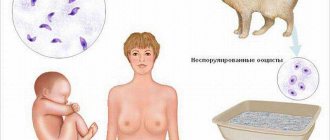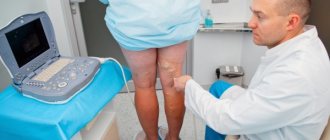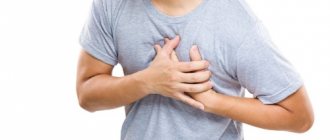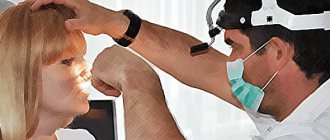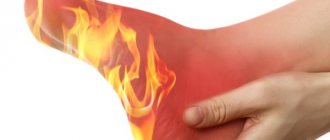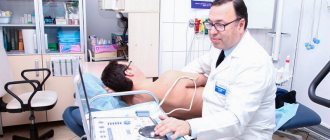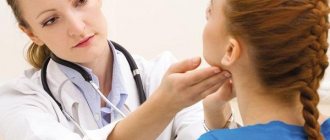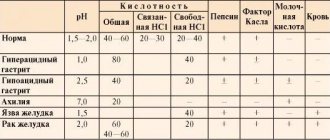Every person experiences hiccups. Usually it does not last long, occurs infrequently, and goes away on its own. Nobody pays much attention to it, unless a person finds himself in a crowded place and begins to attract the attention of others.
Sometimes I have hiccups all day long. This should be a reason to see a doctor. Because such a situation signals serious problems and pathologies in the body.
Why do we hiccup
In adults, frequent hiccups can occur after a heavy meal, as a result of excessive alcohol intake
, with excitement and as a result of drinking cold drinks.
Scientists put forward different theories to explain the occurrence of spasms, and among them there are both plausible and incredible.
Thus, some believe that the reflex that causes hiccups is nothing more than a modified sucking reflex.
Nevertheless, conservative experts agree that this condition in an adult healthy person is caused by the following reasons:
- Binge eating. When the stomach is full, the intercostal muscles begin to contract involuntarily. A person who begins to hiccup after eating a large meal should start eating in moderation.
- Sudden fear, including after sleep. If the body is in an uncomfortable position for a long time, and then a person gets scared, a sharp breath causes contraction of the diaphragm muscles.
- Alcohol intoxication. When poisoning occurs, the body tries to get rid of toxins, so smooth muscles contract intensely.
- Nervous tic. Disruption of the nervous system causes involuntary contractions of various muscle groups
, and diaphragm spasms are a special case of this condition. - Hypothermia. Reflex muscle spasm is how the body reacts to cold. Some adults begin to tremble, while others hiccup.
Pathogenesis
The mechanism for the occurrence of hiccups involves a “reflex arc”, consisting of afferent sections, central and efferent sections. Trauma, irritation, inflammation or pathological stimulation can occur at any part of the arch, causing persistent or intractable hiccups. The afferent pathway (branches of the phrenic, vagus nerves and thoracic sympathetic trunk) carries impulses to the hiccup center, where the signal is processed. It is located in the medulla oblongata next to the respiratory center, hypothalamus and reticular formation and in the upper part of the spinal cord (segment C3-C5). The efferent link includes motor fibers of the phrenic nerve, which innervates the diaphragm and the respiratory muscles of the chest (intercostal and scalene). The diaphragm is innervated by two phrenic nerves originating from segments CIII-CIV (neck area).
For any pathology of the abdominal or thoracic cavity, when the phrenic or vagus nerve is stimulated, the “hiccup center” is activated. The hiccup center, which controls the respiratory muscles, especially the diaphragm, is independently activated in brain diseases. In both cases, repeated myoclonic contractions of the diaphragm and respiratory muscles occur. Sometimes hiccups develop when the vagus nerve is stimulated (for example, due to bloating of the stomach and intestines).
The hiccup mechanism can be triggered by the vagus nerve when it is exposed to general irritating factors and local ones (when it is compressed along the path). The vagus nerve passes from the thoracic cavity into the abdominal cavity through an opening in the diaphragm, innervating the organs of the thoracic and abdominal cavity. Therefore, inhaled exhaust fumes and chemical gases, cigarette smoke, alcohol, spicy foods or cold drinks that irritate the gastric mucosa provoke an attack. Irritation of the vagus nerve occurs when a person eats hastily, overeats, and is in an uncomfortable position.
Hiccups while sleeping
Hiccups during sleep are more often observed in representatives of the stronger sex, but sometimes an unpleasant syndrome is also observed in women and children. Here are the typical causes of this condition:
- cold in the room where the person sleeps;
- eating and drinking plenty of food at night;
- heart rhythm disturbances;
- chronic diseases of the kidneys, liver, spleen, pancreas, stomach;
- heart and vascular diseases;
- bronchitis, pneumonia;
- problems with the brain and spinal cord;
- malignant neoplasms.
Also, frequent hiccups in men can be a consequence of short-term stress
, rescheduled the day before.
After a delicious lunch
After eating, hiccups occur quite often in adults. The root cause is always the same - severe irritation of receptors
sympathetic and vagus nerves responsible for the functioning of the diaphragm, and the source of the problem must be sought among various factors.
Spasmodic contractions of the diaphragm occur for one of the following reasons:
- binge eating;
- reaction to the spiciness of food, pungent odor, specific taste, bitterness;
- hypothermia (long stay in the cold, cold food, drink);
- too hot drinks and dishes;
- semi-finished products, dry food, food on the go;
- myocardial infarction;
- a disease affecting the respiratory system or cerebral cortex;
- damage to nerve cells
(neurons) in the brain; - pathologies affecting the central nervous system;
- malignant or benign tumors of the digestive system;
- intracranial hypertension;
- intervertebral hernia;
- uremia - autointoxication that develops with renal failure;
- pneumonia;
- gastritis;
- nervous tic;
- tumors affecting the spinal cord.
In more rare cases, after eating, hiccups in adults are caused by the following factors:
- intravenous administration of sodium methohexital;
- traumatic brain injury
; - insufficient chewing of food;
- meningitis;
- encephalitis;
- various household reasons.
One of the dangerous causes of hiccups is atrophic gastritis, accompanied by dysregenerative and dystrophic changes in the cells of the integumentary epithelium of the stomach
Reasons for appearance
It usually appears for the following reasons:
- violation of nutrition rules: overeating, hasty absorption of food, dry food;
- hunger, thirst;
- consumption of alcoholic and carbonated drinks;
- uncomfortable body position for a long time;
- stressful situations, fear, excitement;
- cooling the body, especially in young children.
We recommend reading: Why hiccups start immediately after eating
The problem caused by these reasons goes away in 5-25 minutes, very rarely lasts several days.
How to stop hiccups
If it is known for certain that the state of health is normal and the life of an adult is not in danger, you can quickly stop hiccups
using one of the express methods. Here's what to do if an adult has hiccups:
- Drinking water. It is necessary to slowly drink a few sips, while the diaphragm is irritated and subject to temperature fluctuations. As a result, the condition returns to normal.
- Breathing into a paper bag. You need to take a bag made of craft paper (plastic is not suitable), exhale so that it inflates, then draw in the air.
- Place butter or sugar under your tongue. It is necessary to dissolve the product gradually, while saliva is released, the sensitivity of the diaphragm increases
, the swallowing reflex is triggered and the functioning of the esophagus is normalized. - Fright. If a person is startled by a pop, scream, or other sound, there is a chance that the hiccups will stop as a result of contraction of the diaphragm. But this method should be used with caution.
- Incline. The hiccupper should sit down, tuck his knees to his chest and lean forward. Squeezing the diaphragm will stop the hiccups.
- Holding your breath. You need to inhale with your stomach, taking in as much air as you can, and not exhaling for several seconds. This will put the diaphragm under pressure and the condition will return to normal.
Diet
There is no special diet for central hiccups, since it is impossible to influence this process with therapeutic nutrition. For food-related hiccups, it is important to monitor the amount of food you eat and the speed at which you eat it, as both of these factors can trigger hiccups. For diseases of the gastrointestinal tract, therapeutic nutrition should be used in accordance with the underlying disease. The general principles are fractional meals, exclusion of fatty, spicy, fried foods, foods that cause bloating (legumes, baked goods, kvass, an abundance of simple carbohydrates).
Diseases with hiccups
Hiccups are a sign of what disease is this unpleasant condition? If an adult hiccups for a day or longer, this may indicate diabetes mellitus, cancer problems, diseases of the digestive system or respiratory system
. Often, pathological hiccups occur after injuries and are a sign of a pathological process occurring in the body. With pancreatitis, spasm of the diaphragm is observed against the background of inflammation or tumor of the pancreas. These are the most common causes in adults.
During a stroke, an unpleasant condition is accompanied by the following phenomena:
- dyspnea;
- weakness;
- Strong headache;
- weakness of the facial muscles, immobilization of the face on one side;
- blurred vision;
- loss of balance;
- inability to speak, etc.
In people suffering from gastric ulcers, toxic hiccups are observed against the background of belching with an unpleasant taste and smell, burning pain in the epigastric region. In case the symptom is caused by an allergic reaction
body to anything, a person may hiccup for a long time and painfully, but the condition is not difficult to alleviate, for example, just take a deep breath and exhale several times, and then hold your breath for 5-6 seconds.
Symptoms and diagnosis of contraction
During hiccups, a sharp contraction and relaxation of the muscles occurs, which begin to twitch quickly. The symptoms of this condition are:
- causeless sharp contraction of the diaphragm with a parallel short inhalation (in this case protrusion of the abdomen occurs);
- a specific sound “hic” (a person makes it due to the closing of the glottis and epiglottis);
- spontaneous termination of physiological hiccups after a short time.
Pathological hiccups can be quite long-lasting, sometimes up to several days. To begin treatment for this condition, it is necessary to diagnose the causes of its occurrence. To do this, the doctor does:
- Collecting an anamnesis of the disease: in this way, it will be established what the patient suffered from before. These can be pathologies such as diabetes, diseases of the digestive tract, pericarditis, alcoholism, neoplasms of various types, stroke, injuries and much more. You also need to clarify with the patient what medications he is taking, because they can also cause hiccups.
- Physical diagnostic methods include visual examination of the patient, palpation, tapping and auscultation. During such an examination, the doctor must examine the abdomen, sternum, nasopharynx, eardrums, esophagus and stomach.
- Laboratory tests of blood and urine.
- Chest X-ray.
- Magnetic resonance imaging.
- CT scan.
Radiation diagnostics will help to establish why hiccups cannot be eliminated by simple methods, and what triggered its appearance. For example, this way you can recognize tumors pressing on the diaphragm. If necessary, a consultation with other specialized specialists, such as a surgeon, psychiatrist, gastroenterologist, neurologist, is scheduled.
Best materials of the month
- Coronaviruses: SARS-CoV-2 (COVID-19)
- Antibiotics for the prevention and treatment of COVID-19: how effective are they?
- The most common "office" diseases
- Does vodka kill coronavirus?
- How to stay alive on our roads?
What is the danger
In addition to the fact that hiccups cause discomfort, this condition can signal a serious illness.
Therefore, an adult whose attacks of hiccups are repeated frequently and occur at any time, and not just during sleep, when frightened, hypothermia or after eating, needs to be examined.
The therapist will tell you which specialists to go through. If you have hiccups every time after eating, it is not immediately possible to determine what disease this may be a sign of.
Self-treatment, including traditional methods, can only be used for adults
, if there is confidence that the condition is not a symptom of a dangerous pathology. Conducting any experiments on children is unacceptable!
Pathological hiccups are dangerous due to frequent complications, including nausea, headache, loss of strength, and fatigue. Particularly sensitive people may have a stroke.
List of sources
- Ivashkin V.T., Trukhmanov A.S. Evolution of ideas about the role of disorders of the motor function of the esophagus in the pathogenesis of gastroesophageal reflux disease. Russian Journal of Gastroenterology, Hepatology, Coloproctology 2010; 20(2):13-9
- Cherkasov M.A., Mokhanna M.I., Ibragimov Z.A., Rabadanov R.Sh., Kovalenko A.N., Aliev A.G. Persistent hiccups after epidural anesthesia for revision hip replacement // International Journal of Applied and Fundamental Research. – 2021. – No. 9. – P. 86-90.
- Shtulman D.R., Levin O.S. Neurology: A Practitioner's Handbook. 6th ed. 2008, 1024 p.
Treatment options
When the cause is identified, the doctor prescribes physiotherapeutic procedures, narrowly targeted medications, or one of the following drugs:
- Sedaphyton. Helps cope with stress, tidies up the nervous system.
- Ketamine. Relieves pain caused by muscle tension.
- Gabapentin. Eliminates shortness of breath, normalizes breathing
, and has a slight relaxing effect. - Omeprazole. Reduces the concentration of hydrochloric acid in the stomach, promotes the removal of toxins from the body.
- Ranitidine. Normalizes the production of gastric juice.
- Aminazine. Relaxes the muscles of the diaphragm and intercostal muscles.
- Baclofen, haloperidol. They act almost identically, helping to stabilize the smooth muscles of the diaphragm
.
Here's how to stop hiccups in adults using non-drug methods:
- blockade or stimulation of the phrenic nerve;
- hypnosis sessions;
- acupuncture.
Traditional medicine methods
Treatment of hiccups with traditional methods can help an adult if it is not possible to see a doctor, and it is known for certain that the condition is caused by a harmless cause.
Here are a few methods that are practiced by residents of villages and villages:
- Pressing on the root of the tongue. This action causes spasm of the esophagus but eliminates spasm of the diaphragm.
- Impact on the muscles of the oral cavity. You need to take the tip of your tongue and pull it down
or to the side. - Drink. A glass of water should be drunk in small, slow sips.
- Sour taste. You should eat a slice of lemon
or drink water with a little lemon juice or vinegar added. - Beer with sugar. A sweetened, low-alcohol drink relaxes muscles, but not immediately, but after 15–20 minutes.
- Eyeball massage. You need to close your eyes and make several soft massaging movements in a circular manner.
- Hold your breath while inhaling. 10–15 seconds is enough.
- Exercise. As soon as the hiccups begin, you need to do push-ups on the floor until the spasms stop.
- Swallowing a small piece of bread or ice. This method helps many.
Note!
Every adult needs to take care of their health, including avoiding stress and nervous overload.
Video: causes and treatment of hiccups
